14+ Sample Event Strategic Plan
-
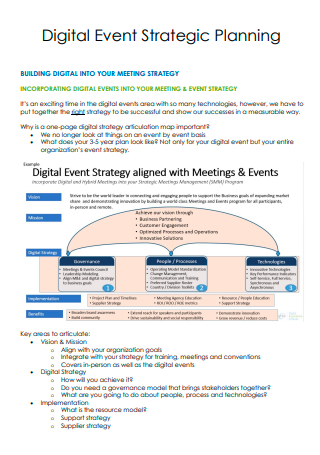
Digital Event Strategic Planning
download now -
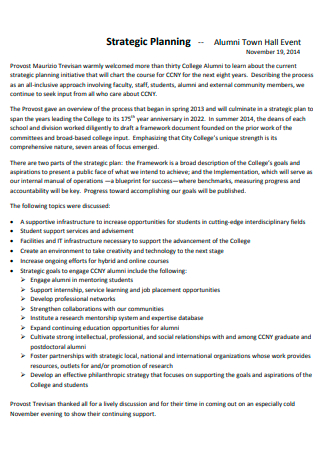
Hall Event Strategic Planning
download now -
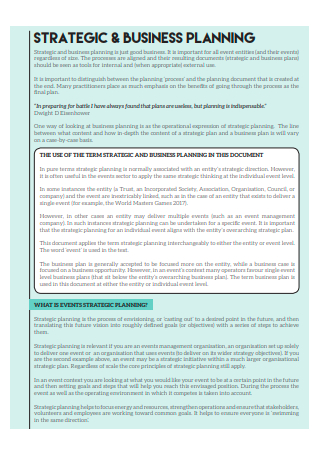
Event Strategic and Business Planning
download now -
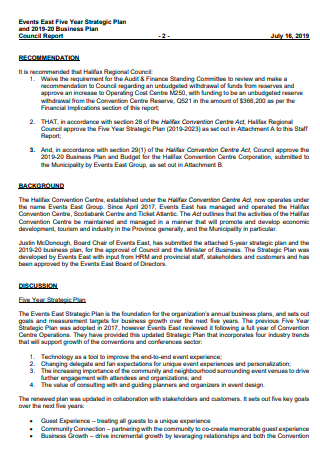
Event Five Year Strategic Plan
download now -
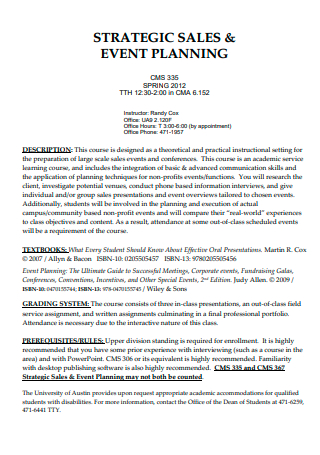
Event Strategic Sales Planning
download now -
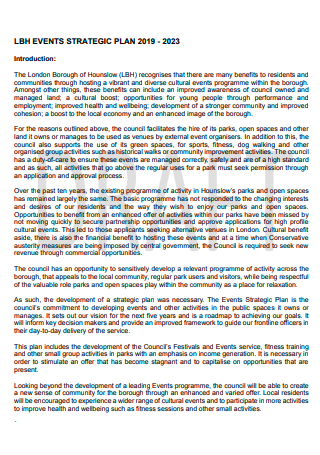
Draft Event Strategic Plan
download now -
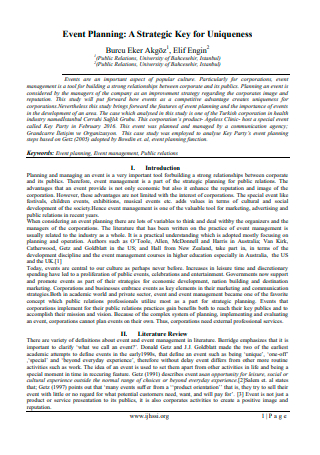
Event Strategic Plan in PDF
download now -
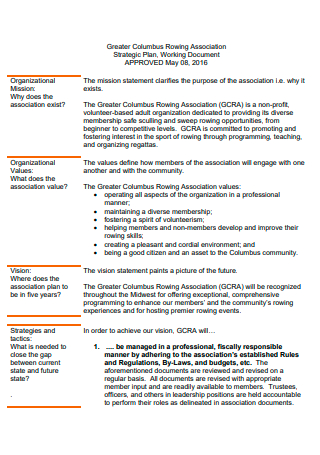
Rowing Association Event Strategic Plan
download now -
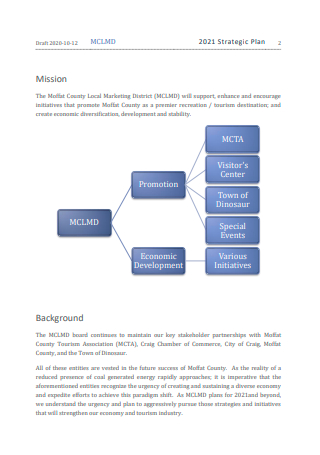
Event Strategic Plan Example
download now -
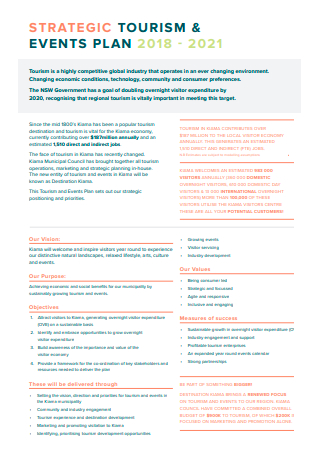
Event Strategic Tourism Plan
download now -
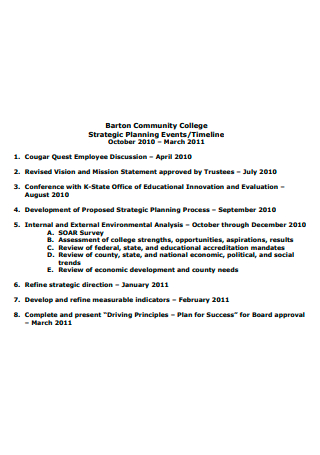
Printable Event Strategic Plan
download now -
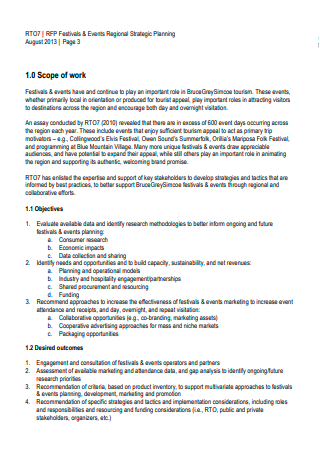
Festivals and Events Regional Strategic Planning
download now -
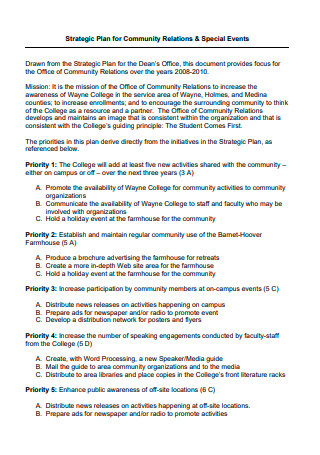
Community Relations and Special Events Strategic Plan
download now -
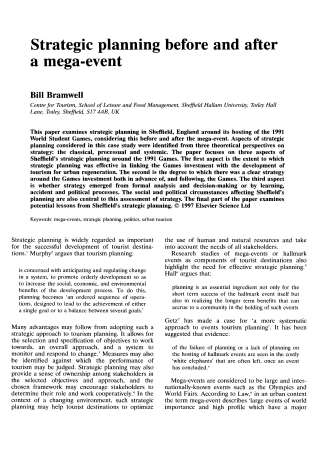
Mega Event Strategic Planning
download now -
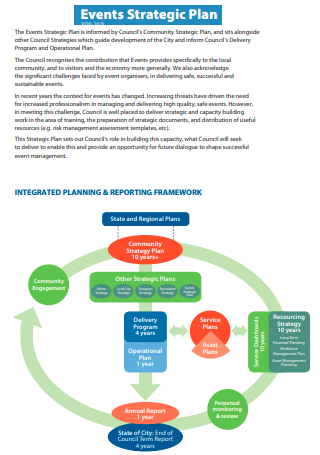
Formal Event Strategic Plan
download now
FREE Event Strategic Plan s to Download
14+ Sample Event Strategic Plan
What Is an Event Strategic Plan?
Tips For a Successful Event
Activities and Processes In Event Management
How to Create an Event Strategic Plan
FAQs
How do you write a strategy for an event?
What are the 5 C’s of event management?
What is an event strategist?
What Is an Event Strategic Plan?
An event strategic plan is a written comprehensive plan that aims to use targeted strategies in order to execute an event smoothly and successfully.
According to an online article by G2, 29% of B2B marketing budgets are allocated and spent on events. Further, almost half or 48% of event planners start planning for their events 6-12 months prior. Social media is also the most effective tool for event marketing, according to 74% of event planners.
Tips For a Successful Event
Events are exciting to plan but they can also be challenging to execute. All event planners and organizers want a smooth-sailing event. But more often than not, unexpected problems and issues always turn up. The following examples are simple yet useful tips that can help you stage a successful event.
Activities and Processes In Event Management
The event management industry involves a lot of different activities and demands various requirements, depending on the type of event or its objective. These processes or activities are needed in order to effectively implement an event. The following examples describe just some of the major processes involved in event management.
How to Create an Event Strategic Plan
To create an effective event strategic plan, you need to have a vision or at least an idea of what your event should look like. And if you are looking for greater ease and convenience, try using any of the sample templates from the selection above. Choose one that meets your needs and simply follow the step-by-step guide below.
Step 1: Identify the Objectives
The first step is to determine your event objectives. What do you want to accomplish at the end of your event? What is the purpose of staging such an event? What outcomes do you want to fulfill by holding this event of yours? The objectives or purpose will set the tone and determine the direction of your event strategic plan. It is important to lay down specific and descriptive objectives. Anything too general or vague might not be helpful. Make sure to state your objectives in a clear manner as well. You can enumerate them using bullet points for a more organized section. Avoid listing down too many objectives, a couple of short and straightforward objectives should do.
Step 2: State the Mission or Vision
Once you have established your event objectives, you can incorporate what your mission or vision is for your event. Unlike an objective, a mission and vision statement is driven by values. What are the core values that inspire you to deliver a successful event? It could be customer satisfaction, hard work, or quality service. You should be able to identify what your vision or mission is for the specific event. You can get creative in this section as well, but be sure to use descriptive language and action-based words when crafting your mission or vision statement. A paragraph or two explaining your concrete vision should be enough.
Step 3: Outline the Strategic Plans
The meat of your event strategic plan should obviously be your plans and action items. This section is meant to address the objectives in the earlier section. What concrete steps and strategies can adequately accomplish your event goals and objectives? Outline these plans using the appropriate format. In other words, use a format that will best present your strategic plans. This will depend on your needs and preferences, of course. If using a table is more comfortable for you, then do so. Alternatively, you may also use a Gantt chart if you prefer. Lastly, keep in mind that your strategic plans must not only be concrete and action-driven, but it should also be realistic and attainable.
Step 4: Implement a Timeline and Tracker
The last step is assigning a timeline to your strategic plan. Since it is an event, there will always be a start and a finish. So the element of time is key. As mentioned in earlier sections, event management can generally come in three phases. The planning, execution and post-production phase of the event should, therefore, be plotted in your event strategic plan. Each phase must be assigned a detailed timeline and a progress monitoring tool as well. The latter is crucial for keeping track of deliverables and deadlines. For example, a Gantt chart can serve as both a progress tracker and a timeline in one sheet.
FAQs
How do you write a strategy for an event?
To write a strategy for an event, you need to establish your objectives, action steps, vision, and timeline. Refer to the how-to guide in the previous section for more detailed instructions on how to create an event strategic plan.
What are the 5 C’s of event management?
According to an article by The Guardian, the 5 C’s of event management are concept, coordination, control, culmination, and closeout.
What is an event strategist?
An event strategist is a professional who helps conceptualize, plan and strategize the best ways to execute an event. They must be skilled in a number of different areas including management, communication, planning, and problem solving.
If you want your event to be smooth and successful, you need to know how to strategize and maximize your resources. An event strategic plan is one tool that can help you achieve that. Browse the sample templates above now to get started on your own strategic plan!
